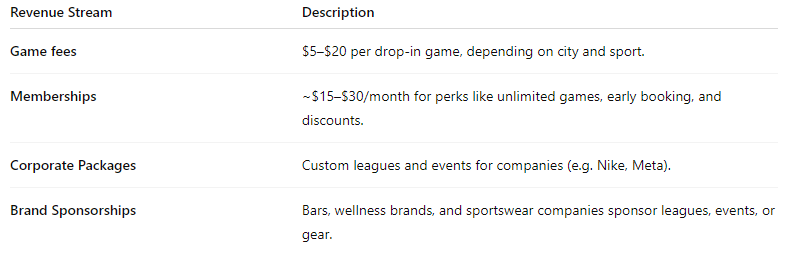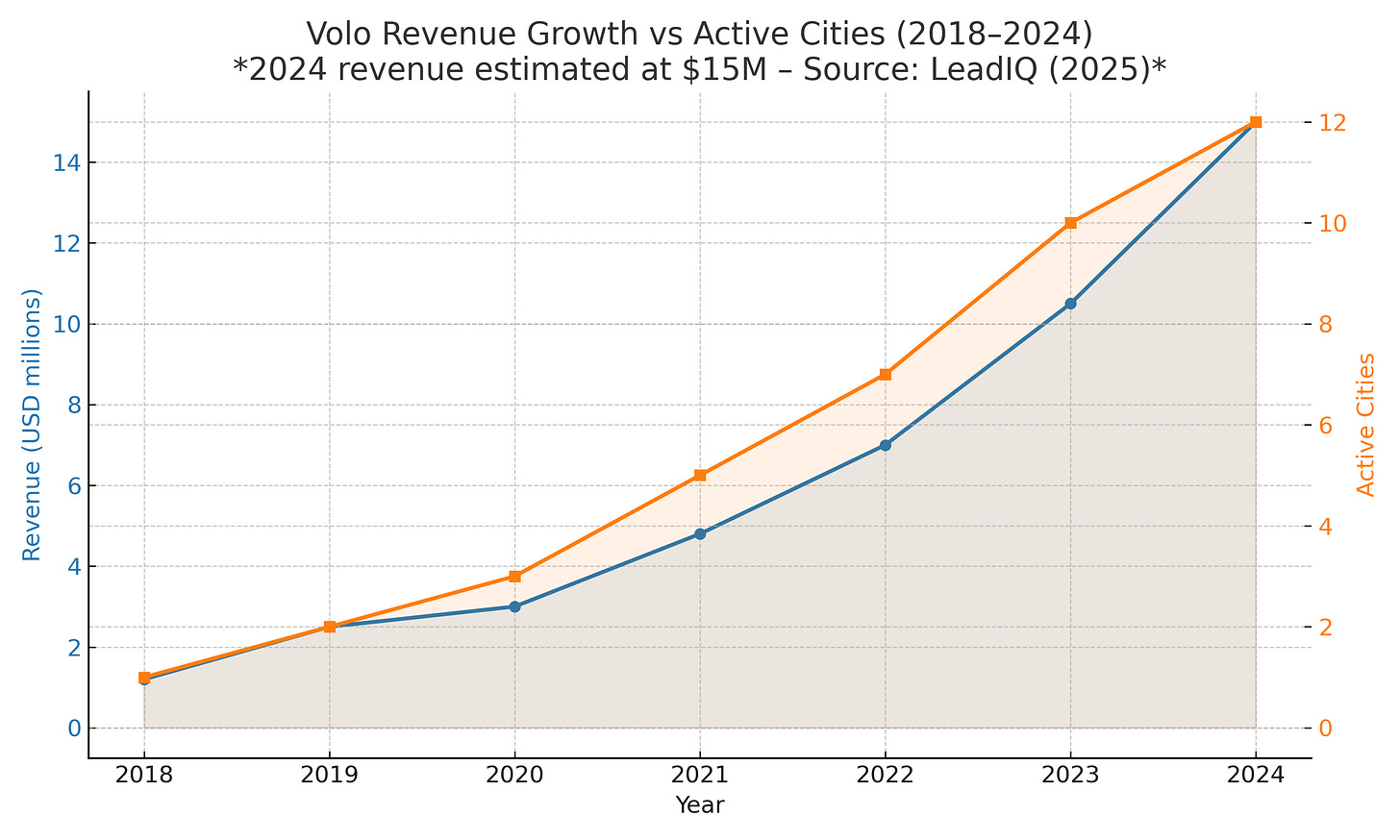How Volo Turned NYC Into a City-Sized Playground
On a humid Saturday in Brooklyn, 24 strangers are laughing through a competitive game of kickball. Some work in finance, some in design, a few are new to the city. None of them knew each other 30 minutes ago.
They’re not here through a meetup group or a company offsite. They’re here through Volo — the social sports app quietly transforming how young adults play, socialize, and build community in America’s busiest cities.
Once a simple rec league in Baltimore, Volo has evolved into a fast-growing consumer app that blends fitness, friendship, and flexibility. Its value prop? Skip the group chat chaos. Just open the app, pay a small fee, and show up to play.
With New York as its proving ground, Volo is building something that looks a lot like the ClassPass of social sports — and it’s doing it in a way that both monetizes and mobilizes urban loneliness.
What They Do Differently
Forget the months-long commitment of joining a league or the awkward friction of posting on Reddit to find tennis partners. Volo strips the whole process down to three taps:
1. Browse games nearby.
2. Pay a small fee (sometimes free).
3. Show up and play — no team, no pressure.
From dodgeball and volleyball to pickleball and casual soccer, users can drop into games happening at local parks, gyms, and courts. Some games fill up in minutes; others draw recurring regulars.
What sets Volo apart isn’t just the UX. It’s the way it blends social infrastructure with physical infrastructure:
Post-game meetups at local bars (often via brand partnerships).
Flexible scheduling so people can drop in without long-term commitment.
Gamified community elements — points, badges, and events — that build stickiness over time.
In cities where friendship often feels gated by dinner reservations or $19 cocktails, Volo makes community feel casual again.
What’s next: their business model and growth engine, the market context and competitors, and the key lessons every founder can steal.
Teaser of remaining sections:
How They Make Money & Scale
The Market Context
Lessons & Takeaways(Premium content continues below this line.)
How They Make Money & Scale
Volo has turned casual games into a diversified revenue engine:
The community-powered model allows Volo to scale locally and lean:
Once a critical mass of players joins in a neighborhood, the cost of organizing games drops.
Partnerships with city rec centers and unused park space keep venue costs low.
Post-game social events build retention — and open up monetization through venues.
In 2024, Volo reported being active in over 10 major U.S. cities, with NYC as its largest and fastest-growing market. It plans to expand to 20+ cities by 2026, riding the wave of urban isolation and the growing appetite for “third places” beyond work and home.
The Market Context
Volo sits at the intersection of three fast-growing consumer trends:
But it’s not alone. Volo competes with:
Meetup.com – good for niche interests, but lacks real-time booking and infrastructure.
ZogSports – operates leagues with stronger logistics, but less flexibility.
Local Facebook groups/Reddit subs – free but chaotic, and hard to scale.
Where Volo wins is productizing spontaneity. It makes social sports as simple and seamless as ordering an Uber — and that’s a moat most competitors aren’t solving for.
Lessons & Takeaways
Volo’s rise offers a blueprint for building community businesses in big, fragmented cities:
Solve logistical chaos: Games fall apart not due to interest, but due to coordination friction. Volo solved the UX gap.
Don’t just build a platform — build habits: With memberships, gamification, and post-game rituals, Volo encourages recurring use.
Go hyper-local, then scale city by city: Like Nextdoor or ClassPass, the city grid is the core unit of expansion.
And most importantly: Community is a feature, not a byproduct. Volo didn’t stumble into community — it engineered it.
As Gen Z and Millennials seek new ways to connect IRL, platforms that make “casual connection” effortless could define the next wave of social tech.
If you’re a founder thinking about the future of urban life, take a cue from Volo: people don’t need more content, more screens, or more noise.
They need better ways to play together.





